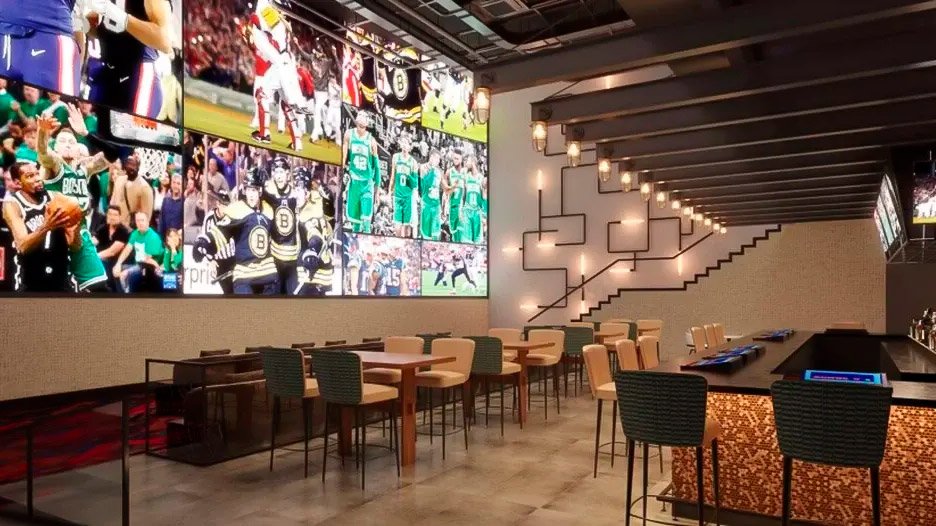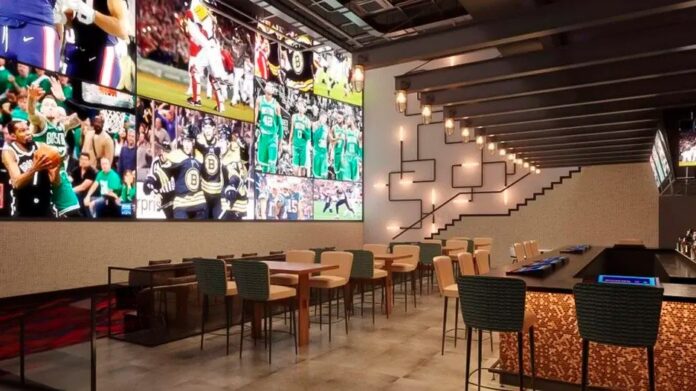ECL Entertainment, in partnership with Toronto-based private equity firm Clairvest, has plans to establish a 130,000-square-foot charitable gaming facility at the southeastern corner of Pheasant Lane Mall in Nashua, New Hampshire. The facility is slated to open in late 2024.
This development will involve the transfer of licenses from ECL’s previous acquisitions, The Lucky Moose Casino & Tavern and The River Casino & Sports Bar, both also located in Nashua, NH Business Review reported.
ECL currently manages historical horse racing (HHR) facilities in Kentucky, including the Mint Casino at Kentucky Downs. A presentation detailing the company’s proposed project will take place at Nashua City Hall on September 7, accompanied by a public comment session.
Preliminary architectural plans for ECL’s mall-based casino reveal two levels housing poker and casino rooms, golf simulators, a two-story sports entertainment complex featuring a full bar, restaurants, a smaller cafe, and over 50,000 square feet available for lease to other tenants. The drawings also indicate space reserved for an additional 300 slot machines at a later stage.
According to Managing Partner Marc Falcone, ECL Entertainment is committing around $250 million to Nashua’s development, the report said. This substantial investment encompasses the renovation of the former Sears location and road infrastructure improvements aimed at enhancing traffic flow.

The firm anticipates generating 700 new jobs and contributing roughly $22 million in annual payroll and associated costs. Upon approval by the planning board, this casino will mark New England’s first within a shopping mall. The Sears store at Pheasant Lane Mall, which extends into Massachusetts, has remained vacant since 2020.
New Hampshire has witnessed a growing number of casinos since 2006 when the state introduced a unique charitable gaming model. Under this model, the operator, rather than the state, directs funds to charity.
Eligible 501(c)(3) organizations registered with the Secretary of State can host up to 10 days at a casino, receiving 35% of gross gaming revenue from table games. Furthermore, casinos are required by law to allocate 10% of their proceeds to the New Hampshire Lottery to support public education.
The gaming industry in New Hampshire received a further boost in 2021 when the Legislature passed a law allowing HHR machines. New Hampshire became the only state in the Northeast and the sixth in the country, following Kansas, Kentucky, Louisiana, Virginia, and Wyoming, to legalize these machines.
It’s important to note that gross gaming revenue calculations for HHR machines differ from those of table games. Operators retain 75% of the revenue, with 8.75% allocated to charity and 16.25% designated for public education.
From a player’s perspective, HHR machines closely resemble traditional casino slots, although the underlying technology varies. HHR machines randomly select race results from an extensive database of past races, whereas slot machines employ a random number generator for determining outcomes. Critics of HHR machines contend that they are designed to circumvent the legal definition of slot machines.














